AMD EPYC Rome Server CPUs: 6 Important Things To Know
CRN runs down six important things solution providers should know about AMD's second-generation EPYC processors, including how they compare to Intel's Xeon processors, how they can reduce TCO and how AMD plans to compete with Intel in the data center.
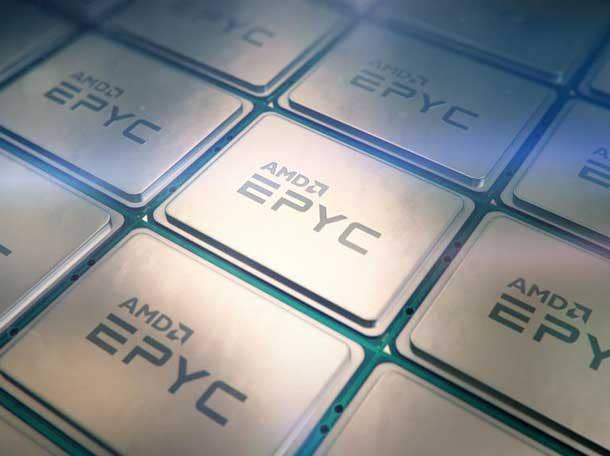
Rome Is Coming For The Data Center
AMD has entered the next stage of its fight to win data center market share from Intel with its second-generation EPYC processors — and it has a large roster of ecosystem partners to help.
The Santa Clara, Calif.-based chipmaker announced the launch of its new EPYC Rome processors at a San Francisco event at the beginning of the month, claiming the new chips beat Intel's Xeon Scalable processors not just in performance but price as well.
"We are almost double [Intel's] performance. That's what we call changing the game" AMD CEO Lisa Su said at the event, calling second-generation EPYC "the highest performing x86 processor in the world."
But the celebrating is over, and now the hard work begins. AMD must convince enterprises the chipmaker can be its long-term partner in the data center, much in the same way Intel has.
What follows are six important things to know about AMD's EPYC Rome server CPUs, including their specifications and features, how they compare to Intel's second-generation Xeon Scalable processors, how they can lower total cost of ownership and how AMD plans to compete with Intel.
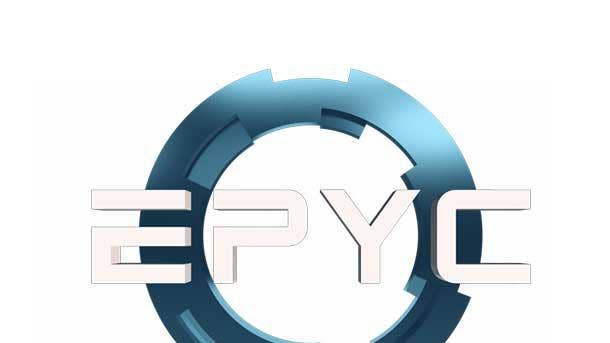
Specs For Second-Gen EPYC's 19 CPUs
AMD's second-generation EPYC lineup consists of 19 processors, 14 of which are supported in single- and dual-socket configurations with the remaining four designed for single-socket.
These processors range from 64 cores to 8 cores. Base frequencies range from 2 gigahertz to 3.2 gigahertz while max boost frequencies go from 3.2 gigahertz to 3.4 gigahertz. They all come with eight DDR memory channels, a maximum DDR4 frequency of 3,200 megahertz and 128 lanes or higher of PCIe 4.0 connectivity. The thermal design power ranges from 120 watts to 225 watts.
Scott Aylor, corporate vice president of data center products, called the lineup a "very simple, clean product stack that allows us to cover the entire market."
The second-generation processors are headlined by the EPYC 7742, which comes with 64 cores, 128 threads, a base frequency of 2.25 gigahertz, a max boost frequency of 3.4 gigahertz and an L3 cache of 256 megabytes. The CPU's default thermal design power is 225 watts, and it can go up to 250 watts.
Comparing to the first-generation EPYC's top-line features, the second generation features up to two times more Zen cores, up to four times more shared L3 cache, up to two times more L3 cache, higher memory frequency and higher memory capacity, the latter of which reaches 4 terabytes per socket.
Aylor said all processors in the lineup come with the same features, which includes security features such as Secure Memory Encryption and Secure Encrypted Virtualization.
"We want our customers and partners to pay for performance they want and not buy up the stack for features they need," he said.
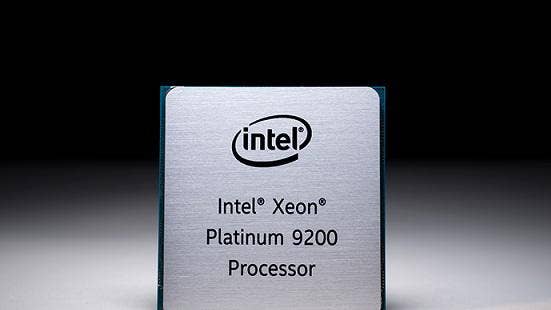
How 2nd-Gen EPYC Compares To 2nd-Gen Xeon Scalable
One of AMD's main talking points about the second-generation EPYC processors is how they provide better performance over Intel's second-generation Xeon Scalable processors at lower prices.
In the case of AMD's top-line EPYC 7742 processor, for instance, the 64-core processor demonstrated a 180 percent improvement in integer performance for cloud workloads over the Intel Xeon Platinum 8280M, which comes with 28 cores. Comparing the same processors, 64-core EPYC achieved 88 percent higher performance for floating point and 83 percent higher for virtualization.
While AMD's entire stack of EPYC processors feature more cores than Intel's Xeon Scalable processors, Intel's server processors still feature higher clock speeds, allowing the semiconductor giant to remain competitive against AMD for single-threaded performance, according to Ars Technica.
AMD demonstrated price-performance advantages of its new processor line against the entire Xeon product stack, with the performance-per-dollar advantage ranging from roughly 1.8X to 4X.
With its $6,950 list price, the 64-core EPYC 7742 is less than half the $13,012 list price of the Xeon Platinum 8280M, providing what AMD said is four-fold performance-per-dollar advantage over Intel's.
The mid-range 32-core EPYC 7452 costs roughly $250 more than the 12-core Xeon Gold 6226, but provides more than double the performance, providing a two-fold price-performance advantage.
Meanwhile, the low-range 16-core EPYC 7282 costs $144 less than the eight-core Xeon Silver 4215 but also provides more than double the performance, providing a performance-per-dollar advantage that is two-and-a-half times greater than Intel.
The chipmaker said its single-socket processors, ranging from 64 cores to eight cores, outperforms not only Intel's entire single-socket Xeon product stack but Intel's dual-socket Xeon processors as well when it comes to integer performance based on the SPECrate 2017_int_peak benchmark.

How AMD EPYC Lowers TCO Compared To Intel Xeon
One of AMD's biggest claims with second-generation EPYC is the processors can provide a 25 percent to 50 percent lower total cost of ownership over Intel's second-generation Xeon Scalable processors.
At the chipmaker's launch event earlier this month, it laid out an example of how this would work in an enterprise deployment using VMware's vSphere Enterprise Plus hypervisor software when comparing AMD's single-socket EPYC processors to Intel's dual-socket Xeon processors.
In the example, the company set the baseline deployment as a setup hosting 2,560 virtual machines on 80 dual-socket, 32-core Intel Xeon Gold 6242 processors. In comparison, AMD would only require 40 single-socket, 64-core EPYC 7702P processors to run the same amount of VMs, thanks to their higher core density per socket, while also providing the same amount of memory per VM.
With half the servers, AMD's configuration resulted in a total hardware acquisition price of $947,480 while Intel's came out 78 percent higher at nearly $1.7 million. Comparing per-socket licensing costs for vSphere, the TCO per VM per year was $207 for AMD's configuration and $448 for Intel's. On power consumption, Intel had a three-year total power cost of $251,280 for Intel while AMD's was $98,040.
Intel's space costs for 160 rack units for Xeon-based systems, equal to four rack cabinets, amounted to $228,636 over three years, while AMD's 40 rack units for EPYC-based systems, equal to one rack cabinet, amounted to $57,159 over three years based on an estimated space cost of $19,053 per year.
As for server administration costs, AMD estimated three-year administration cost of $686,360 for 80 Intel Xeon-based systems versus $343,180 for 40 AMD EPYC-based systems. The chipmaker made the calculations assuming the cost of $89,795 per server administrator, with one admin serving 30 servers.
With these factors combined, AMD said the estimated three-year TCO is $3.4 million for the Intel-based configuration and $1.6 million for the AMD-based configuration, which translates into a TCO per VM per year of $448 and $207, respectively. With 75 percent lower licensing costs, 61 percent less power and 50 percent fewer servers, AMD said this represents on overall TCO reduction of up to 54 percent.
AMD offered the caveat that this example includes many assumptions and estimates and should "not be used as a basis for decision making over actual testing."
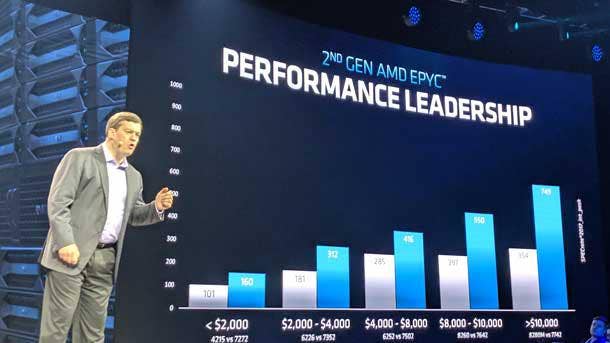
How AMD Plans To Compete With Intel
AMD is aware of the Intel-dominated data center market it's heading into, which is why the chipmaker plans to target workloads like virtualization, high-performance computing and other areas where the new second-generation EPYC processors shine — and then expand from there.
"The fastest adoption is in areas where our advantage is most acute and where the purchase decisions are most influenced by the technical attributes of the product," Forrest Norrod, AMD's top data center executive, told CRN in a recent interview.
[Related: How AMD Plans To Win Over Solution Providers With EPYC 'Rome']
These targeted workloads consist of HPC, machine intelligence, virtualization and cloud, big data analytics and software-defined infrastructure. But the processors also have broad applicability, which is where AMD hopes to grow in the long term.
Part of AMD's strategy involves persuading partners and customers to adopt its single-socket EPYC processors, which the company said can outperform Intel's dual-socket Xeon processors.
"I don't care what Intel dual-socket server you're talking about. I can beat that performance with a single-socket Rome, offering much lower power consumption, much lower capex, better reliability because there's fewer things to fill," Norrod said.
One major advantage Intel has against AMD is its expanding portfolio of data-centric products, which includes CPUs, memory, storage, FPGAs and more. To combat that, AMD is relying on partnerships with hardware vendors such as Mellanox, Micron and Broadcom.
"We're going to make sure that world-class technology from those companies is extremely well supported on the open EPYC ecosystem, and I think generally that wins," Norrod said.
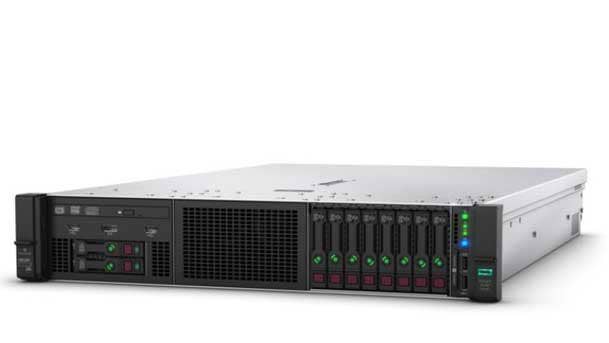
New Record-Breaking Systems From Lenovo, HPE
Dell, Lenovo and HPE all announced new systems powered by AMD's second-generation EPYC processors, the latter two of which are now available.
Lenovo said its new ThinkSystem SR635 and SR655 server platforms are "two of the industry's most powerful single-socket servers," breaking 19 world records in performance and energy efficiency.
[Related: HPE's Tom Lattin: AMD EPYC Single-Socket Is A 'Breakthrough' For TCO]
The OEM said the new servers allow customers to run more workloads on fewer servers while providing up to 73 percent in savings on potential software licensing compared to its x3650 M5 servers. The new AMD-based servers can also lower total cost of ownership by up to 46 percent compared to servers running on Intel's Xeon E5-2699 processors by providing higher core density in fewer servers.
Lenovo said the servers were designed to target data-intensive workloads such as video security, software-defined storage and network intelligence as well virtualized and edge environments.
HPE said its new ProLiant DL325 and DL385 servers eclipse "previous virtualization performance records by as much as 321 percent and power efficiency records by 28 percent" and delivers 37 world-record benchmarks for energy efficiency and performance across big data, cloud and enterprise workloads.
"Building on the innovation of the HPE ProLiant family, the new HPE ProLiant DL325 and HPE ProLiant DL385 with second-generation AMD EPYC processors unlock new levels of workload optimization, security and automation, providing our customers with a clear and fast path to positive business outcomes," Justin Hotard, a senior executive at HPE, said in a statement.
Dell, meanwhile, said it will "offer a complete portfolio of Dell EMC PowerEdge servers" that use second-generation EPYC processors to deliver enhanced server performance, security and management. The new servers will launch later this year.
"Through close collaboration with AMD, we are addressing the demands of traditional, virtualized, hybrid and multi-cloud workloads with a broad portfolio of PowerEdge servers, including newly designed servers optimized for 2nd Generation AMD EPYC processors," said Ravi Pendekanti, senior vice president of product management of server and infrastructure systems at Dell Technologies.

Ecosystem Support From ISVs, Hardware Vendors, Cloud Providers
AMD launched its second-generation EPYC processors with support from more than 60 ecosystem partners, which includes OEMs, ODMs, hardware vendors and software vendors.
Among the hardware vendors supporting second-generation EPYC are Micron, Western Digital, Nvidia, Xilinx, Mellanox and Samsung. On the software side, there are more than 45 supporting vendors, which includes VMware, Microsoft, Siemens, Nutanix, Docker, Splunk, Oracle and SAP.
[Related: Lenovo ThinkSystem Servers With AMD Cuts VMware Licensing Costs]
AMD said VMware is closely collaborating with the chipmaker to support new features in second-generation EPYC processors, such as Secure Encrypted Virtualization, in an upcoming version of vSphere.
Beyond Dell, HPE and Lenovo, other vendors supporting new EPYC-based platforms include Atos, Asys, ASRock, Gigabyte, Cray, Inventec, Supermicro, Tyan and QCT.
System integrators supporting second-generation EPYC include ServersDirect, Megware, Microway, Penguin Computing, Advance Clustering Technologies, Aspen Systems and Nor-Tech
As for cloud service providers, AMD announced Google Cloud will soon offer EPYC-based virtual machines, which the cloud giant said would be its "largest general-purpose VM" ever offered. It also revealed cloud commitments from Microsoft Azure, Amazon Web Services and Oracle Cloud.
Microsoft said its new EPYC-based instances will focus on high-performance computing, virtual desktops, general-purpose use and memory-intensive workloads.